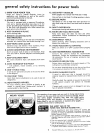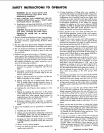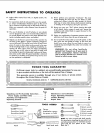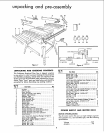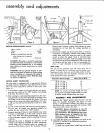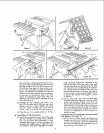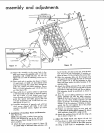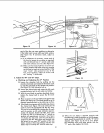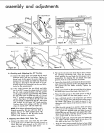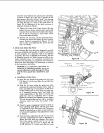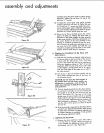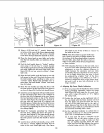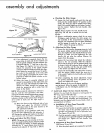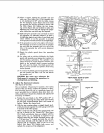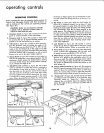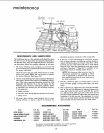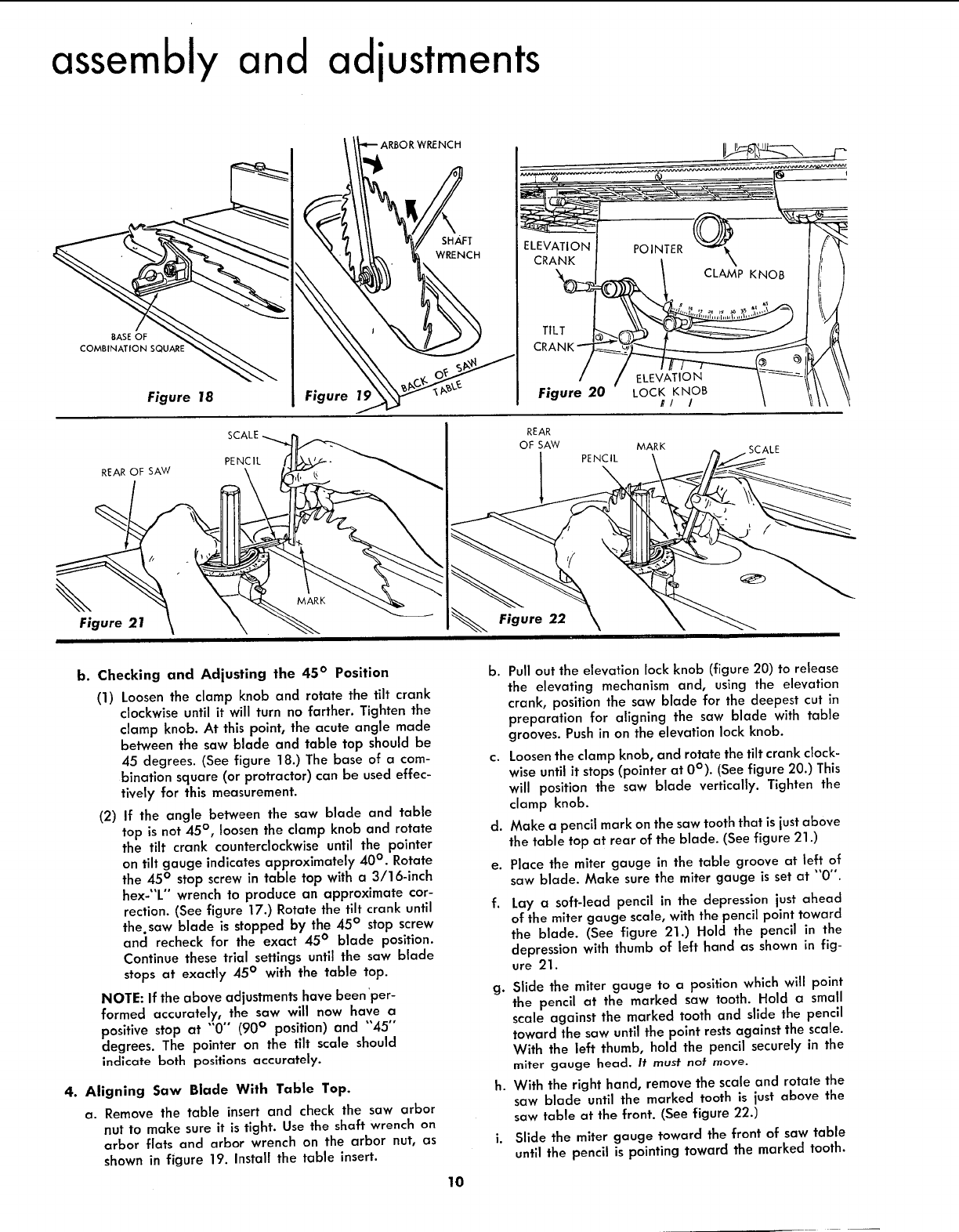
assembly and adjustments
ARBOR WRENCH
\
SHAFT
WRENCH
ELEVATION
CRANK
POINTER
q
CLAMP KNOB
aASE OF
COMBINATION SQUARI
Figure 18
REAR OF SAW
sc,_
PENCIL
Figure
TILT
Figure 20
REAR
OF SAW
PENCIL
ELEVATION
LOCK KNOB
//! /
MARK
SCALE
Figure 21
MARK
Figure 22
b. Checking and Adjusting the 45 ° Position
(1) Loosenthe clamp knob and rotate the tilt crank
clockwise until it will turn no farther. Tighten the
clamp knob. At this point, the acute angle made
between the saw blade and table top should be
45 degrees. (See figure 18.) The base of a com-
bination square (or protractor) can be used effec-
tively for this measurement.
(2) If the angle between the saw blade and table
top is not 45 °, loosen the clamp knob and rotate
the tilt crank counterclockwise until the pointer
on tilt gauge indicates approximately 40° . Rotate
the 45 ° stop screw in table top with a 3/16-inch
hex-"L" wrench to produce an approximate cor-
rection. (See figure 17.) Rotate the tilt crank until
the. saw blade is stopped by the 45 ° stop screw
and recheck for the exact 45° blade position.
Continue these trial settings until the saw blade
stops at exactly 45° with the table top.
NOTE: If the above adjustments have been 'per-
formed accurately, the saw will now have a
positive stop at "'0" (90° position) and "45"
degrees. The pointer on the tilt scale should
indicate both positions accurately.
4. Aligning Saw Blade With Table Top.
a. Remove the table insert and check the saw arbor
nut to make sure it istight. Use the shaft wrench on
arbor flats and arbor wrench on the arbor nut, as
shown in figure 19. Install the table insert.
10
b. Pull out the elevation lock knob (figure 20) to release
the elevating mechanism and, using the elevation
crank, position the saw blade for the deepest cut in
preparation for aligning the saw blade with table
grooves. Pushin on the elevation lock knob.
c. Loosenthe clamp knob, and rotate the tilt crank clock-
wise until it stops(pointer at 0°). (See figure 20.) This
will position the saw blade vertically. Tighten the
clamp knob.
d. Make a pencil mark onthe saw tooth that isjust above
the table top at rear of the blade. (See figure 21.)
e. Place the miter gauge in the table groove at left of
saw blade. Make sure the miter gauge is set at "0".
f.
Lay a soft-lead pencil in the depression just ahead
of the miter gauge scale, with the pencil point toward
the blade. (See figure 21.) Hold the pencil in the
depression with thumb of left hand as shown in fig-
ure 21.
g. Slide the miter gauge to a position which will point
the pencil at the marked saw tooth. Hold a small
scale against the marked tooth and slide the pencil
toward the saw until the point restsagainst the scale.
With the left thumb, hold the pencil securely in the
miter gauge head. It must not move.
h. With the right hand, remove the scale and rotate the
saw blade until the marked tooth is just above the
saw table at the front. (See figure 22.)
i. Slide the miter gauge toward the front of saw table
until the pencil is pointing toward the marked tooth.



